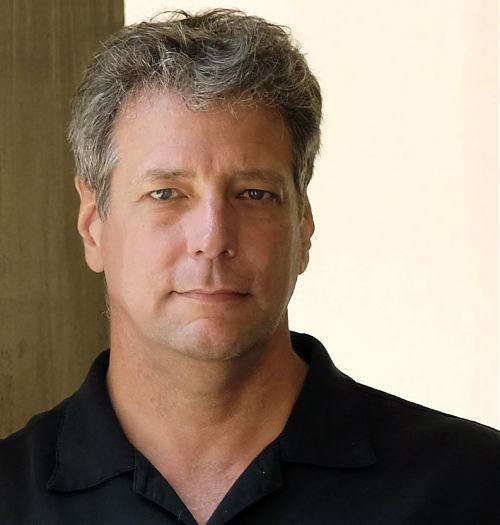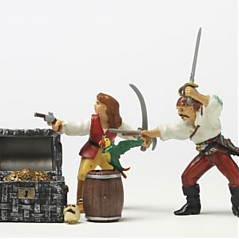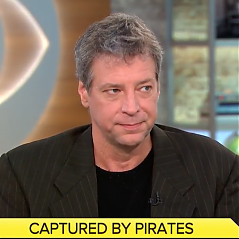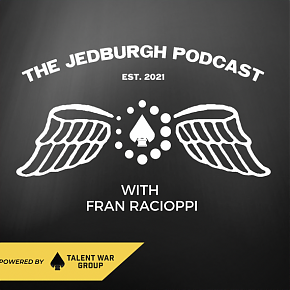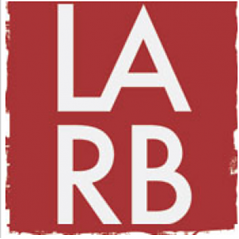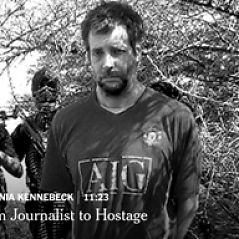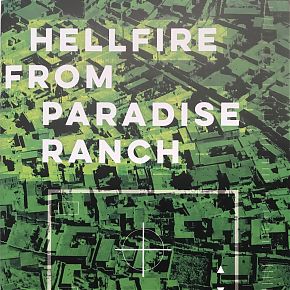Germany’s Great Silence
Sixty years after the end of World War II
Pacific News Service
May 2005
On a calm spring day in Berlin recently a horse with a dead-looking soldier on its back clopped across the cobblestones of a leafy neighborhood. The soldier wore a gas mask and slumped forward on the horse’s mane, or wobbled dangerously in the saddle.
Berliners are used to unusual things, but this was bizarre. People scowled from cars and cafes. Kids ran excitedly behind the horse (“He’s not a puppet! He’s real!”), and the occasional homeless man walked up to give his opinion.
The rider belonged to an “art-action” group called the Heavenly Four, which wanted to celebrate the defeat of Nazism with a dramatization of a satirical song by Bertolt Brecht. In “The Legend of the Dead Soldier,” an infantryman killed in World War I is dug up by a medical commission and sent back to the front.
“He’s the soldier that Germans always dig up to send into another war,” said Michael Wildmoser, a tall, young urban engineer from Bavaria who helped organize the event. “We want to warn against war in general.”
Mr. Wildmoser and his friends belong to a lively wing of a debate in Germany over how to remember World War II that reaches far beyond the anniversary of V-E Day. The “Heavenly Four” name refers to the Allies who liberated Germans from Nazism on May 8, 1945, and liberation is the word used by any German who wants to admit the nation’s crimes and banish the ghost of Hitler.
The point of the Heavenly Four’s event, in fact, was to counter a march in Berlin by the neo-Nazi National Democratic Party, which loathes the word liberation. The party tried to mount a parade in Berlin on May 8 to protest Allied “crimes” at the end of World War II. Berliners turned out in the thousands to squelch the parade; the National Democratic Party is even more alien to them than a dead soldier on horseback. Still, the party’s conscious (and increasingly successful) idea is to make Germans feel like victims again, the way they felt after World War I.
This lunatic position would be easy to dismiss if the subject of wartime defeat weren’t so taboo in Germany. But the National Democratic Party speaks up, where other Germans don’t, about the firebombing of cities like Hamburg and Berlin and Dresden between 1943 and 1945.
“I think we speak for a silent majority,” says the party’s chairman, Udo Voigt. “The current government wants to celebrate ‘liberation’ [from Nazism] on May 8, but many Germans don’t feel themselves liberated by the Allies. … So we say: ‘We’re not celebrating. Enough with the cult of guilt. There is no collective guilt.’”
The problem with Mr. Voigt is that he speaks for a quiet, subterranean strain of German feeling. Not only civilians but whole segments of German civilization were incinerated in the fire-bombings; ancient cities like Dresden and Cologne were literally hollowed out. “The destruction of the city itself, with all its past as well as its present,” wrote the British poet Stephen Spender after visiting Cologne in 1948, “is like a reproach to the people who go on living there. The sermons in the stones of Germany preach nihilism.”
Whether the Allies could have broken the Nazi machine by demolishing supply lines and oil refineries instead of city centers was a controversy even in Churchill’s time. Some excellent German writers, like the late W.G. Sebald, have started to mention it. The problem for Germany is to outline its loss without pretending to be victimized.
Mr. Sebald points out that German literature, and to some extent German memory, draws a blank on the almost nuclear devastation left after the war. “The images of this horrifying chapter of our history have never really crossed the threshold of the national consciousness,” writes Mr. Sebald in his final book, On the Natural History of Destruction. “I was not surprised when a teacher in Detmold told me … that as a boy in the immediate postwar years he quite often saw photographs of the corpses lying in the streets after the firestorm, [photos] brought out from under the counter of a Hamburg secondhand bookshop, to be fingered and examined in a way usually reserved for pornography.”
The resurgence of parties like the NPD—which won 12 legislative seats in the eastern state of Saxony last fall, and keeps making offensive noises about a “German Holocaust” at the end of World War II—can be explained, in part, by this shameful silence. The extreme German right stands for national pride in a nation that has very little national pride (still, after two generations).
Most Germans will tell you they mistrust patriotism; they grew up with the idea that Americans rescued them from Hitler, and any contrary opinion still has a ring of disobedience, bitterness, ingratitude.
“The majority of Germans today know, or so at least it is to be hoped,” wrote Mr. Sebald, “that we actually provoked the annihilation of the cities in which we once lived. Scarcely anyone van now doubt that Air Marshall Goring would have wiped out London if his technical resources had allowed him to do so.”
And that’s exactly the problem. Hitler had tried to erase a people; he would have gone on to erase London and Moscow and New York. But the towering moral shame that still shadows German pride isn’t enough to erase a collective grief.
Michael Scott Moore
§
Letter to National Catholic Reporter, where this piece was republished under a slightly different title:
Thanks for sharing Michael Scott Moore’s Viewpoint, “Germany’s Unspeakable Collective Grief” (NCR, June 3). The topic of German suffering during and after the war is so complex, so mined with sensibilities, it’s a wonder that anyone on either side of the pond ever writes about it. I found the piece well explored and highly relevant.
I do take issue with Moore’s statement, “The problem is for Germany to outline its loss without pretending to be victimized.” Surely many Germans — young, elderly, infirm or handicapped — were innocent of both genocide and the waging of aggressive war, yet all were victimized without distinction in the carpet bombing of Hamburg, Dresden, Cologne, Essen, Wurzburg, Pforzheim and many other cities.
I lived in Wurzburg for three years in the early ’70s as military wife, mother of a young son and member of a local charismatic Catholic-Lutheran Gebetskreis (prayer community). Wurzburg, a medieval city of no strategic importance, was destroyed by RAF incendiary bombs on the night of March 16, 1945. Five thousand German civilians died as well as 10 Allied POWs. Nine thousand were made homeless.
Twenty-five years later, the bombing (and the starvation after the war) was still widely discussed by local citizens. There was no taboo about the topic. Some elders simply volunteered the observation that bombing a city full of schools and hospitals made no sense. I didn’t disagree with them. Others asked why the Allies did this. I had no answer. Younger Germans, while conscious of their parents’ suffering, were in a very different place. Still these stories were passed on in families. In my opinion, some Germans still want to hear British and American leaders say that the gratuitous targeting of civilians was a moral mistake.
Louise Barnes Vera
Cincinnati
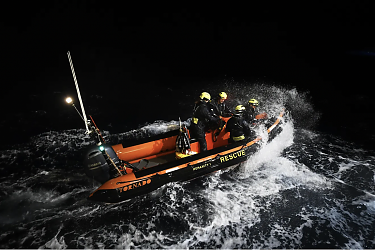
Rafts of the Medusa
Why every day on the Mediterranean is a new scandal for Europe. For both Foreign Policy and Die Zeit.
California’s Attempt at Land Reparations
How land seized from a Black family 100 years ago may be returned. The Bruce’s Beach story from a hometown angle, for The New Yorker
Day of the Oprichnik, 16 Years Later
The novelist Sorokin, the president Putin, his man Dugin, and the war in Ukraine. For n + 1.
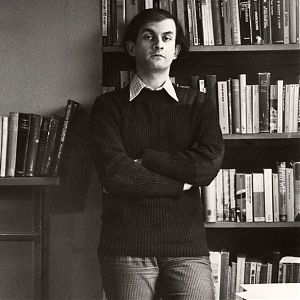
The Rushdie Narrative
Knife and the crumbling ground beneath free speech
There Must Be Some Way Out of Here
An essay on Bob Dylan, “All Along the Watchtower,” and Somali pirate captivity.
That Mystic Shit
The life of Lou Reed in two biographies

Cambodian Seafarers Talk About Pirates
Mike visits Cambodia for The New Yorker to talk about a harrowing shared experience in Somalia
The Muslim Burial
Cambodian hostages remember digging a grave for one of their own. A sequel chapter to The Desert and the Sea
The Real Pirates of the Caribbean
Adventure journalism in Southern California. A travel essay for The Paris Review.

Antifa Dust
An essay on anti-fascism in Europe and the U.S., for the Los Angeles Review of Books
Was Hitler a Man of the Left?
A book that helped Republicans in America lose their damn minds.
Ghosts of Dresden
The Allied firebombing of Dresden in 1945 destroyed the baroque center of what Pfc. Kurt Vonnegut called, in a letter home from Germany, “possibly the world’s most beautiful city.”
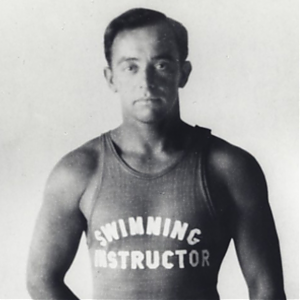
George Freeth, Biographed
The first academic treatment of America’s surf pioneer. Also, was Freeth gay?
It’s Called Soccer
Americans live on what amounts to an enormous island, defended on two shores by the sea, and we’ve evolved a few marsupial traditions that nobody else understands.
Tilting at Turbines (in the Severn River)
The morning was clear and cold, with frost on the church steeple and the cemetery grass. I had a quick English breakfast at a white-cloth table, in my wetsuit, and drove to Newnham, a village on the Severn River in Gloucestershire, parking near the White Hart Inn.
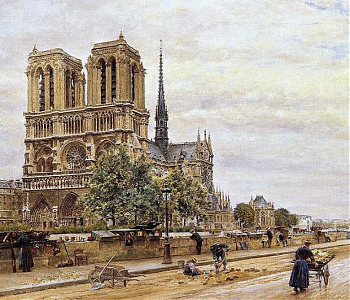
The Curse of El Rojo
I’d packed the car lightly — a bag of clothes, a bag of cassette tapes, a backpack of books, a few essential tools.









